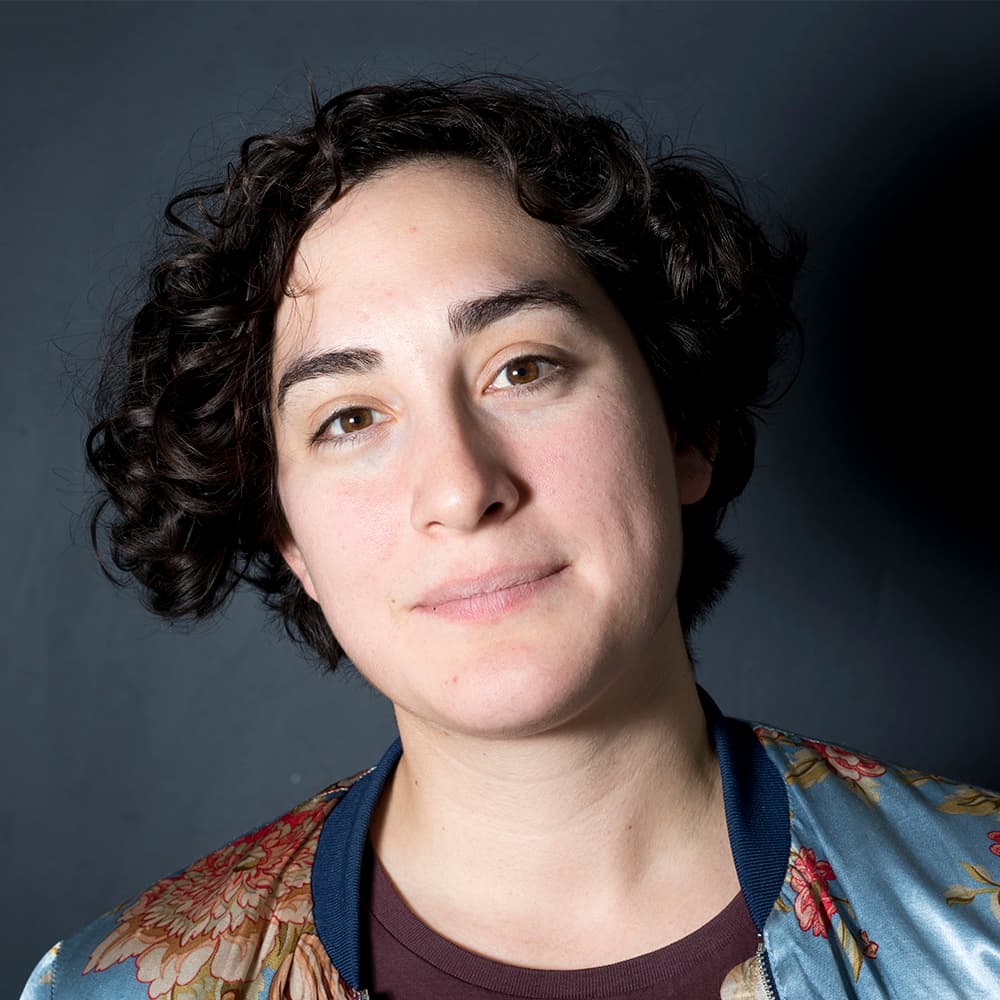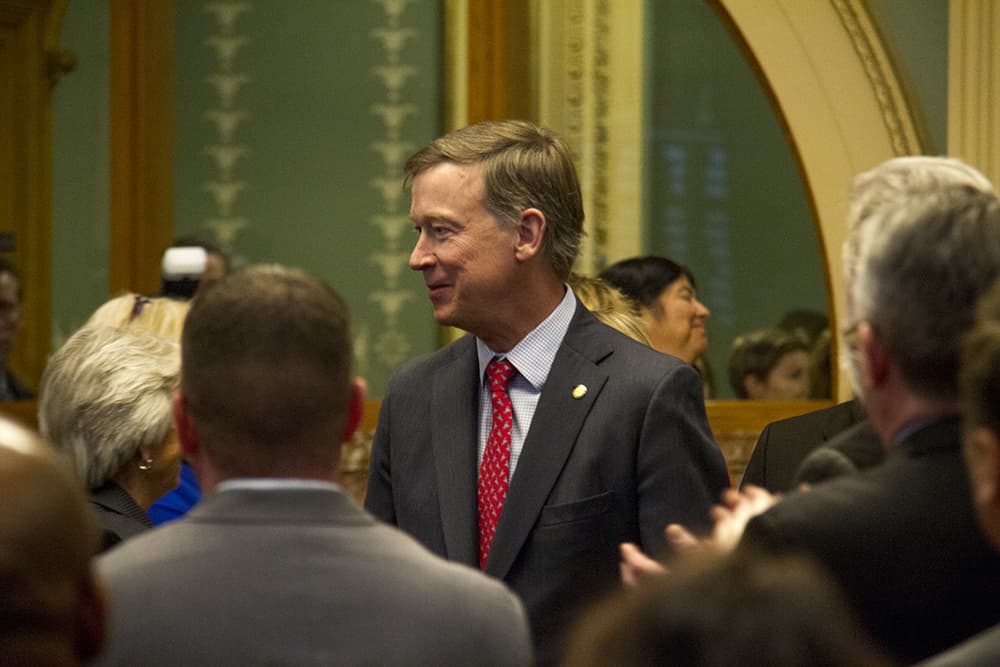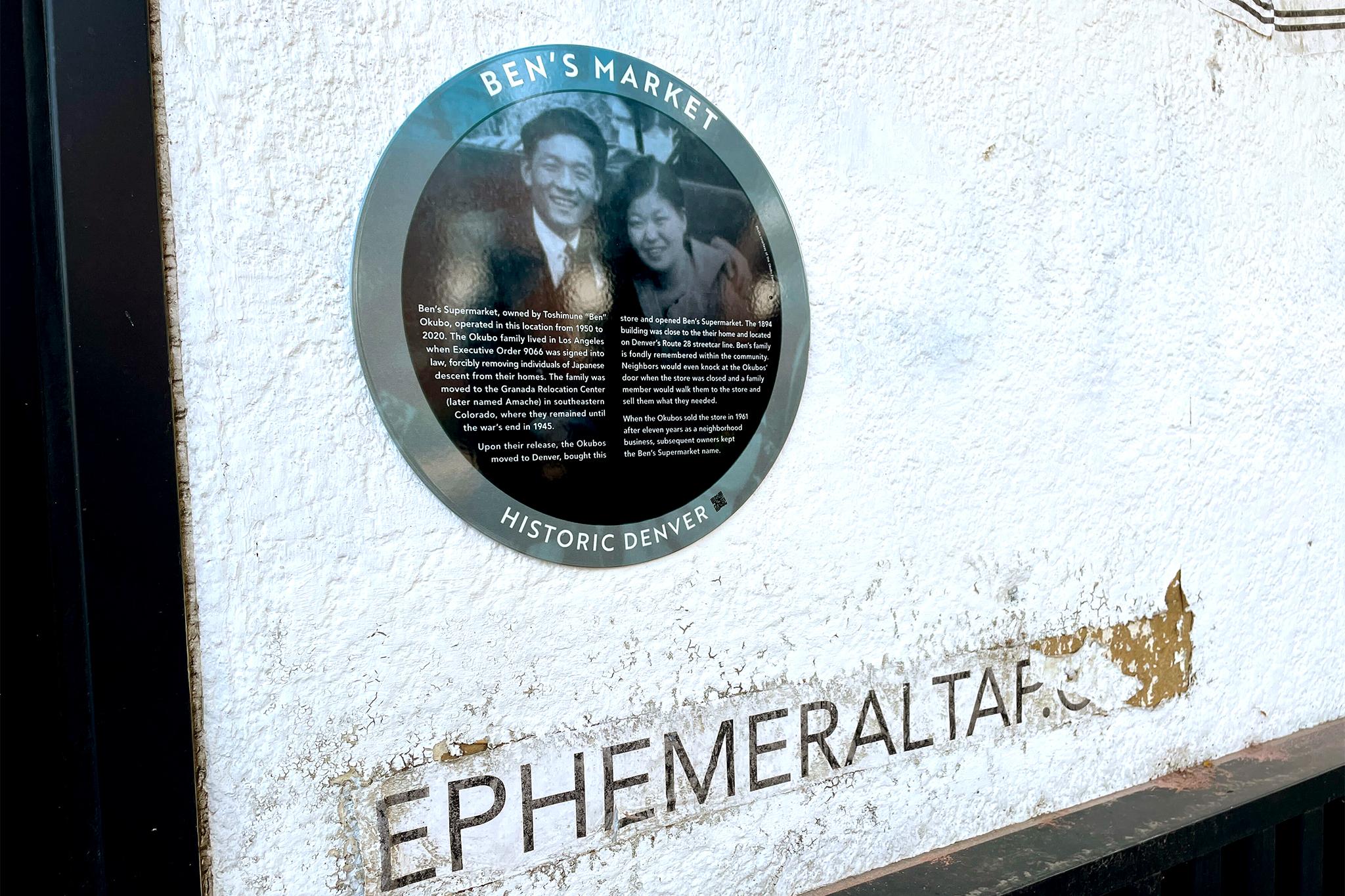"I'm sure he loves me saying that," said Chuck Todd on NBC News' "Meet the Press with Chuck Todd."
Hickenlooper also talked about Trump, weed and fracking. See what he had to say.
Hickenlooper discussed what the Democrats' role is in opposing Trump. And of course, weed stuff.
There are two interesting things to note with regard to weed here. First, Hickenlooper doesn't think that marijuana enforcement is a priority, per a conversation Gardner had with new Attorney General Jeff Sessions. And second, he's still not ready to personally endorse recreational marijuana:
"I don't think I'm quite there yet, but we have made a lot of progress," Hickenlooper said. "I mean, if you get rid of that black market, you've got tax revenues to deal with, the addictions, and some of the unintended consequences of legalized marijuana, maybe this system is better than what was admittedly a pretty bad system to begin with."
If you need more of the governor's thoughts, a full transcript is below, courtesy of Meet the Press.
CHUCK TODD:
Welcome back. Despite the election of Tom Perez as DNC chairman yesterday, Democrats are on the outside looking in at nearly all levels of government. The party’s bench is weak after the electoral shellacking it took during the Obama years. But one possible bright spot for Democrats is John Hickenlooper of Colorado. He’s the former mayor of Denver and current governor who won both of his gubernatorial terms in 2010 and 2014, two of the worst years for Democrats nationally in their history. His state is increasingly blue in a region of the country that has been a surprise growth area for Democrats over the last decade. He’s also a frequently whispered name in the early early stages of the Democratic presidential sweepstakes for 2020. I’m sure he loves me saying that. Gov. Hickenlooper, welcome to Meet the Press.
GOV. JOHN HICKENLOOPER:
Great to be here.
CHUCK TODD:
Let me start with the question that I ended the Tom Perez interview with, which is this idea
the Democrats look like they’re uniting around this idea of just being the party of no and the party of anti-Trump. That doesn’t seem to be your comfort zone. Is it moving too fast in that direction in your opinion?
GOV. JOHN HICKENLOOPER:
Well, I'm not sure it's moving that fast in that direction. Certainly, there's a lot of, you know, anxiety and anger and protest going on. But you look at someone like Tom Perez, who is, I mean, he's lived through bias and prejudice, he's experience it first hand, he spent years, you know, fighting for social justice and civil rights. And he also, as secretary of labor, did more to think about how do we reeducate people for the next generation of jobs than just about anybody. I mean, he's a constructive person. Now, obviously he's got lots to criticize, and that's part of his job. But he brings a big, broad background to the job.
CHUCK TODD:
I hear you. But you had Hillary Clinton saying, "Resistance." Using that actual word, which for a Clinton, any Clinton, that just seemed like a shock to the system. But you heard Chuck Schumer say, "Dump Trump." He's the Senate Democratic leader. A week after the election, he was even saying, "Well, on some things, if we agree with him, we'll work with a President Trump." That seems to be gone. And is that going to bite the Democrats at some point?
GOV. JOHN HICKENLOOPER:
Well, I don't know. I think some of them, the people like Senator Schumer, has got to be thinking back to when President Obama was first elected, and within a couple of weeks, that same kind of anger was being used against him, and they'd do anything to beat him, they're going to, you know, take every single possible opportunity to try and embarrass him and make sure he's defeated during his reelection. I think there's, you can't blame them - you can’t blame anybody for being that upset. And also, there's been a lot of problems in the first month of this administration.
CHUCK TODD:
Let's talk about your political victories at times in other states that the Democrats haven't. You're a guy that's defended fracking, you're a guy that's been a proponent of charter schools. Is that one of the explanations, why you as a Democrat have been able to win in years that Democrats haven't? Is it things like that, challenging preconceived notions?
GOV. JOHN HICKENLOOPER:
I don't know, part of it's I've been blessed to have a lot of really smart, hard-working people, many of that young people, who work their fingers to the bone on these campaigns. It's a tough job. I think part of it is I came from a small business, and I think I understand jobs, I really understand what it's like to-- I got laid off, I was out of work for a couple years, and then we built a company that hired a lot of people.
And being able to talk about jobs over the last ten or 15 years, when so many people feel they're not being heard, and really trying to listen, right? And when I'm campaigning, I go out and I don't tell people so much what I think as I try to hear what they're feeling.
CHUCK TODD:
But I guess, Governor, I mean, it's interesting to hear you talk about being an entrepreneur, owning a small business, again, fracking, charter schools. There are some Republicans in blue states that talk about those issues too. I mean, my point is is that, are you sending a subtle message to the Democratic party, "Hey, you've marginalized yourselves a little bit"?
GOV. JOHN HICKENLOOPER:
No, I would never. No. And I think there are lots of places, I mean, Colorado was the first state where we actually found a way, we brought all the oil and gas industry, together with the environmental community, and we found a way the regulate methane, fugitive emissions.
And we really put a cap, I mean, every single well gets visited every year to make sure there is no leakage. It's really about collaboration. And I think that's part of the background of the restaurant business, but part of the background of the West, the mountain West is people have through experience, you've got to work together to really make progress.
CHUCK TODD:
All right, you're the governor of Colorado, so marijuana's going to now always be a question from a national reporter. Let me ask you this on the regulation side. The federal government has essentially never enforced the federal law, which has allowed Colorado to set up the recreational-use business. There's a new attorney general. We know that Jeff Sessions as a senator was opposed to it.
You're blessed as a governor to have senators from both parties. That's always a good thing no matter who's in charge. What do you hear from your Republican colleagues, about whether Jeff Sessions is going to basically enforce federal law and shut down recreational use marijuana businesses?
GOV. JOHN HICKENLOOPER:
You know, at first, I opposed it. And most elected officials did. But our voters passed it 55-45. It's in our constitution. Right, I took a solemn oath to support our constitution. So - And at this rate, it's a sovereignty, the states have a sovereignty just like the Indian tribes have a sovereignty, and just like the federal government does. So it's an interesting com--
CHUCK TODD:
You don't think it's clear that the federal government could stop you? You don't think it's a clear-cut case?
GOV. JOHN HICKENLOOPER:
Exactly. I don't think it is. And I think it's, certainly, it's never my choice to be in conflict with federal law. Let's make that clear.
CHUCK TODD:
Okay.
GOV. JOHN HICKENLOOPER:
That being said, so Senator Gardner had talked to Mr. Sessions before he was confirmed, Senator Sessions at that point, and was led to believe that Senator Sessions said, you know, "Enforcement of marijuana was not going to be a primary, you know, it wasn't worth rising to the top and becoming a priority."
And look, the implication was you don't have go crazy on this. Now, obviously, things might have changed, and we have to see what happens. But, I mean, it's over 60% of American people are now in a state where either medical or recreational marijuana is legalized. It's become one of the great social experiments of our time.
CHUCK TODD:
If this were put on a ballot today, I know you opposed it before, but if it were put on a ballot today, would you now support it?
GOV. JOHN HICKENLOOPER:
Well, I'm getting close. I mean, I don't think I'm quite there yet, but we have made a lot of progress. We didn't see a spike in teenage use. If anything, it's come down in the last year. And we're getting anecdotal reports of less drug dealers. I mean, if you get rid of that black market, you've got tax revenues to deal with, the addictions, and some of the unintended consequences of legalized marijuana, maybe this system is better than what was admittedly a pretty bad system to begin with.
CHUCK TODD:
All right. John Hickenlooper, Democratic governor from Colorado. Thanks for coming in. I know you're here for the big governor's meeting, so you've got more meetings to go to.
GOV. JOHN HICKENLOOPER:
You bet.













